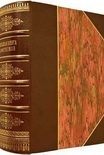A Flight of Arrows by A.J. MacKenzie (most recommended books txt) 📗

- Author: A.J. MacKenzie
Book online «A Flight of Arrows by A.J. MacKenzie (most recommended books txt) 📗». Author A.J. MacKenzie
2
Saint-Vaast, 12th of July, 1346
Late afternoon
The English did not find Robert Bertrand; instead, he found them, announcing his presence with a savage attack on their position at Quettehou. Holland’s archers and the Welsh spearmen blunted the first attack, but Bertrand gathered his three hundred men and struck again. This time the Red Company moved across and took the French in the flank, driving them back. More English men-at-arms hurried up from the beach to join the fighting, but despite being heavily outnumbered, the French continued to resist for several hours. Only when most of his men were dead or wounded did Bertrand finally retreat.
Simon Merrivale, the Prince of Wales’s herald, watched the Earl of Warwick dismount outside the church in Quettehou. The marshal was covered in dust, and there was blood on his surcoat. ‘Has Sir Edmund Bray returned?’ Warwick asked.
The herald shook his head. ‘We assumed he was with you, my lord.’
‘The young fool left his position and went off scouting alone. He has probably got himself captured by the French.’
‘Let us hope that is the worst that has befallen him, my lord.’
Warwick turned away to talk to his officers. Roger Mortimer came up to Merrivale. ‘Is it true? Edmund is missing?’
‘Yes, but don’t worry. In the morning I will send a message to the French and ask if he has been taken. If he has, you can help arrange his ransom.’
Mortimer nodded, but Merrivale thought he looked anxious. The traitor’s grandson had few close friends, and Bray had been one of them.
As the fighting died down, the king and prince and their retinues went down to the camp, a sprawling collection of wagons, tents and pavilions that had been set up near Saint-Vaast. Along the beach, a steady stream of boats brought men, horses and supplies ashore. The unloading of the ships would continue for several days.
More smoke rose in the distance. The troops had begun to loot the countryside, carrying away everything they could and burning what they could not. Merrivale had seen this on other campaigns, but it still depressed him.
He heard the beat of hooves behind him, and turned to see two horsemen riding into the camp, leading a third horse by the reins. A body clad in armour was tied across its saddle. Oh God, Merrivale thought, and he closed his eyes and uttered a short prayer. He knew the arms on the surcoat all too well.
The two men lowered the body gently to the ground and stepped back, bowing their heads respectfully. They were men-at-arms but clearly rather impoverished ones, in scuffed leather jerkins rather than mail and armour. One wore heavy boots, the uppers of which were badly cracked. A battered shield hung from the pommel of his saddle, bearing three red eagles on a white field.
The Prince of Wales ran forward and knelt beside the body. The other young men gathered around, their eyes wide. ‘What happened?’ the prince asked.
The broken stumps of two arrows protruded from Bray’s backplate. The shafts were black with dried blood, and more blood stained his surcoat and armour. ‘He was shot, Highness,’ the herald said.
‘In the back? By God, the French really are cowards. An honourable man faces his opponent.’ The prince rose to his feet. ‘Poor Edmund,’ he said. ‘He was an excellent fellow, and would have made a good knight.’ He started to say something else, but checked. Instead, he swallowed suddenly and turned on his heel. ‘Such are the fortunes of war,’ he said abruptly, and walked away leaving his retinue staring after him.
Mortimer knelt by the body, looking down at the dead face framed by the open bascinet. After a moment, he reached out and closed Bray’s eyes with gentle fingers. His own face was covered in tears. Merrivale rested a hand on his shoulder.
‘Take him up to Saint-Vigor,’ the herald said gently. ‘Let his body rest by the altar tonight, so that his soul will be close to God. Tomorrow we shall bury him.’
Mortimer nodded. Merrivale looked for the two men-at-arms, but both had disappeared. He turned and walked away, frowning.
More tents were going up, some with banners or pennons in the colours of their owners. Merrivale spotted the yellow chevron of Cobham, the red pile of Chandos, the red and gold stripes of one of the Bassets; the lord of Drayton, his herald’s memory told him. Further along were the familiar ermine and red chevrons of Sully. He looked at these for a moment and then walked towards the tent. A groom stood outside, combing a bay horse.
‘Is Sir John within?’ Merrivale asked.
‘Aye, he is,’ said a voice inside the tent. ‘Come in, herald, and take the weight off your feet. Baker, pour Master Simon a glass of wine.’
Merrivale smiled and entered the tent. Sir John Sully of Iddesleigh sat in a folding wooden chair, one leg stretched out stiffly before him. An ebony stick rested against the side of the chair. He had discarded his armour, though he still wore an ancient sweat-stained arming doublet. White hair flowed down over his shoulders, but his blue eyes were bright with youth.
‘Sit, lad, sit.’ Sully pointed to another chair. ‘Are you well?’
‘All the better for being back on dry





Comments (0)